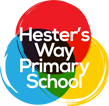According to The UK Safer Internet Centre – What are the issues?
The internet – on the whole an inspiring and positive place. The internet is an amazing resource which enables children and young people to connect, communicate and be creative in a number of different ways, on a range of devices. However, the internet is always changing, and being able to keep up to date with your children’s use of technology can be a challenge. You may sometimes feel that your children have better technical skills than you do, however children and young people still need advice and protection when it comes to managing their lives online. Issues that your child may encounter on the internet will vary depending on their age and online activities.
We have grouped potential online risks into these 4 categories.
Conduct: children may be at risk because of their own behaviour, for example, by sharing too much information. Children need to be aware of the impact that their online activity can have on both themselves and other people, and the digital footprint that they create on the internet. It’s easy to feel anonymous online and it’s important that children are aware of who is able to view, and potentially share, the information that they may have posted. When using the internet, it’s important to keep personal information safe and not share it with strangers. Discuss with your child the importance of reporting inappropriate conversations, messages, images and behaviours and how this can be done.
Content: age-inappropriate or unreliable content can be available to children. Some online content is not suitable for children and may be hurtful or harmful. This is true for content accessed and viewed via social networks, online games, blogs and websites. It’s important for children to consider the reliability of online material and be aware that it might not be true or written with a bias. Children may need your help as they begin to assess content in this way. There can be legal consequences for using or downloading copyrighted content, without seeking the author’s permission.
Contact: children can be contacted by bullies or people who groom or seek to abuse them. It is important for children to realise that new friends made online may not be who they say they are and that once a friend is added to an online account, you may be sharing your personal information with them. Regularly reviewing friends lists and removing unwanted contacts is a useful step. Privacy settings online may also allow you to customise the information that each friend is able to access. If you have concerns that your child is, or has been, the subject of inappropriate sexual contact or approach by another person, it’s vital that you report it to the police via the Child Exploitation and Online Protection Centre (www.ceop.police.uk). If your child is the victim of cyberbullying, this can also be reported online and offline. Reinforce with your child the importance of telling a trusted adult straight away if someone is bullying them or making them feel uncomfortable, or if one of their friends is being bullied online.
Commercialism: young people can be unaware of hidden costs and advertising in apps, games and websites. Young people’s privacy and enjoyment online can sometimes be affected by advertising and marketing schemes, which can also mean inadvertently spending money online, for example within applications. Encourage your children to keep their personal information private, learn how to block both pop ups and spam emails, turn off in-app purchasing on devices where possible, and use a family email address when filling in online forms.
https://www.saferinternet.org.uk/advice-centre/parents-and-carers/parental-controls-offered-your-home-internet-provider
For many children, it’s not only traditional PC’s that bring them into online communities. Many go online using their games consoles. Below are links the most popular, explaining how to ensure your children remain safe whilst using them online.
https://www.saferinternet.org.uk/advice-centre/parents-and-carers/parents-guide-technology
Please be aware of the age restrictions on games, films and APPs. They are there to keep your child safe socially, emotionally, mentally and physically. Learn how to safeguard your child as they develop socially through these different online platforms.
https://www.net-aware.org.uk/news/age-content-ratings-apps-games/
Educate Against Hate is a useful government website to help parents and professionals understand the risks of children and young people being radicalised by extremists online and how to keep children and young people safe from this.
http://educateagainsthate.com/

